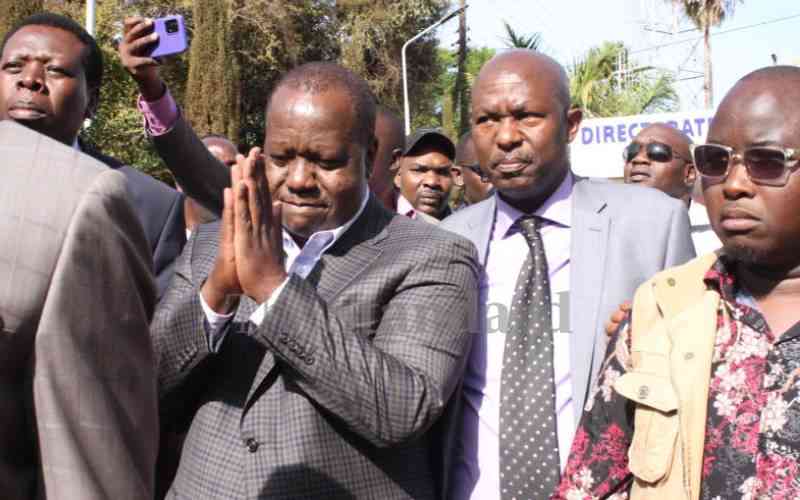×
The Standard e-Paper
Smart Minds Choose Us

Director of Public Prosecutions Noordin Haji has said he found no evidence to sustain two charges against former Interior Cabinet Secretary Fred Matiang'i.
Consequently, Haji ordered the Directorate of Criminal Investigations (DCI) to close the file.